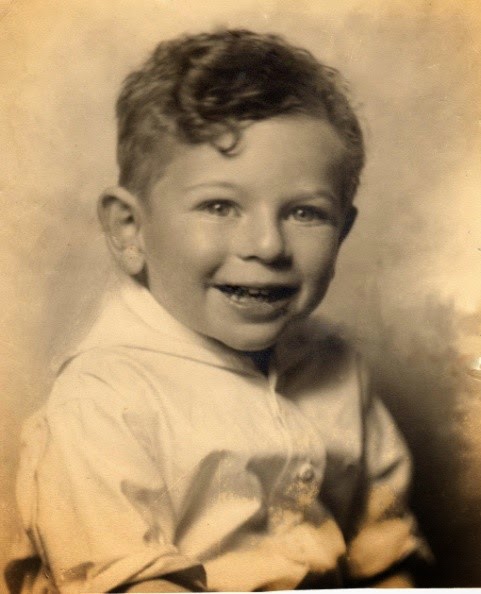 |
| Estelle Byk Kesner |
The theme for Week 7 was
“Love.” Admittedly, I’m a tad bit behind. Blame that on the Genealogy Do-Over. Oh,
and the IRS. I wanted to get our taxes filed in case the Anthem Hackers stole
our identity. Looks like we’re safe!! (But this is serious business. Close friends of
ours did, indeed, have their info stolen in the Anthem hacking. So I’m not just
paranoid.)
My post this week is
more about relationships than about genealogical data. A few years ago, my
father, Alan Samuel, wrote a few short stories which I put together in a slim volume for
family. One story, “Grandmother’s Love” describes the special relationship he
had with his maternal grandmother, Estelle Byk Kesner. I've written about
Estelle before but am taking this opportunity to further explore the family relationship.
 |
| Article in family scrapbook created by Estelle Byk Kesner |
The little newspaper article in the family scrapbook shows that the
story of me running away when I was three years old is true. I had an argument
with my mother, and I stomped out of the house with the announcement “I’m going
to see Nanny.” The notion of the toddler resentfully seeking support from his
grandmother is unusual only that in going to see Nanny, I would have to travel
from Jamaica, New York, to Brooklyn, a journey of about an hour on the Long
Island Railroad.
I have some recollections of that trip, although it may be that what I
remember are aspects of the story told to me in later years. I see myself
sitting next to the window, the man to my right asking where my grandmother
lived.
“In Brooklyn,” I said.
 |
| Alan - 3 years old - 1935 |
The vagueness of the address may be the reason for what happened next,
according to the newspaper article. I was taken off the train at the next stop
and my father was called from work to pick me up.
That’s the story. The events of the story. What lies behind it is as
important, it seems to me, showing something about my relationship with my
grandmother that has been clear to me much more in later life. I obviously had no doubts about the reception
I would receive from my grandmother. Complete acceptance and support. Here was
a three-year-old who had someone he could count on without question. That is a
relationship that I and my sister could count on as children, and that gave us
a sense of solid acceptance not only as children then but as people all through
life.[1]
Alan continued his story, detailing the special
relationship. He was the first grandson and more importantly the first boy born
in his grandmother’s family. (Estelle had two daughters, Constance and my
grandmother, Hortense.) They spent summers at the Kesner farm and enjoyed many
family events at his grandparents’ apartment house on Eastern Parkway in
Brooklyn.
Alan was 16 years old
when his beloved grandmother passed away on October 23, 1948.
His life was not
without difficulties, many brought about by his own decisions. He writes about that as well,
It has taken years for me to reconstruct the intimacy that [my sister]
and I shared as children, a lesson in relationship that influences decisions I
make in later life. I have seen similar circumstances affect the lives of some
of my older children. All of this, however, goes back, I believe, to the
relationship that my grandmother’s impact on our lives established. It is an
impact I would liked to have had on my own grandchildren’s lives, and the
failure of the possibility of doing so is one of my greatest regrets.[2]
I read that and
immediately thought about the importance of my own grandmothers (Hortense Byk
Kesner and Rose Spiegel Lichtenthal) in my life, including my step-father’s
mother Vera Stella Falcone and our “adopted” grandmother, Alice Kilsheimer.
Then I thought about the incredible influence my mother, Doris Lichtenthal Falcone, had on our children.
As I begin my own “grandmother
journey” I hope I will kindle the same feeling – being loved unconditionally –
in our grandchildren.
Note - I have searched numerous websites (especially Fulton History and the Brooklyn Newstand)
trying to locate the source of the clipping shown above. If any reader would like to take on that challenge, I shall be eternally grateful. Week # 5 of the Genealogy Do-over had us working on citing sources and it's driving me crazy that I don't have this information. Maybe it's time for a train ride to NYC?
trying to locate the source of the clipping shown above. If any reader would like to take on that challenge, I shall be eternally grateful. Week # 5 of the Genealogy Do-over had us working on citing sources and it's driving me crazy that I don't have this information. Maybe it's time for a train ride to NYC?
[1]
Samuel, Alan E. Stories from My Life. Comp. Deborah Holman. N.p.: n.p.,
2009. Print. A collection of short stories published for private use.
[2]
Ibid.

